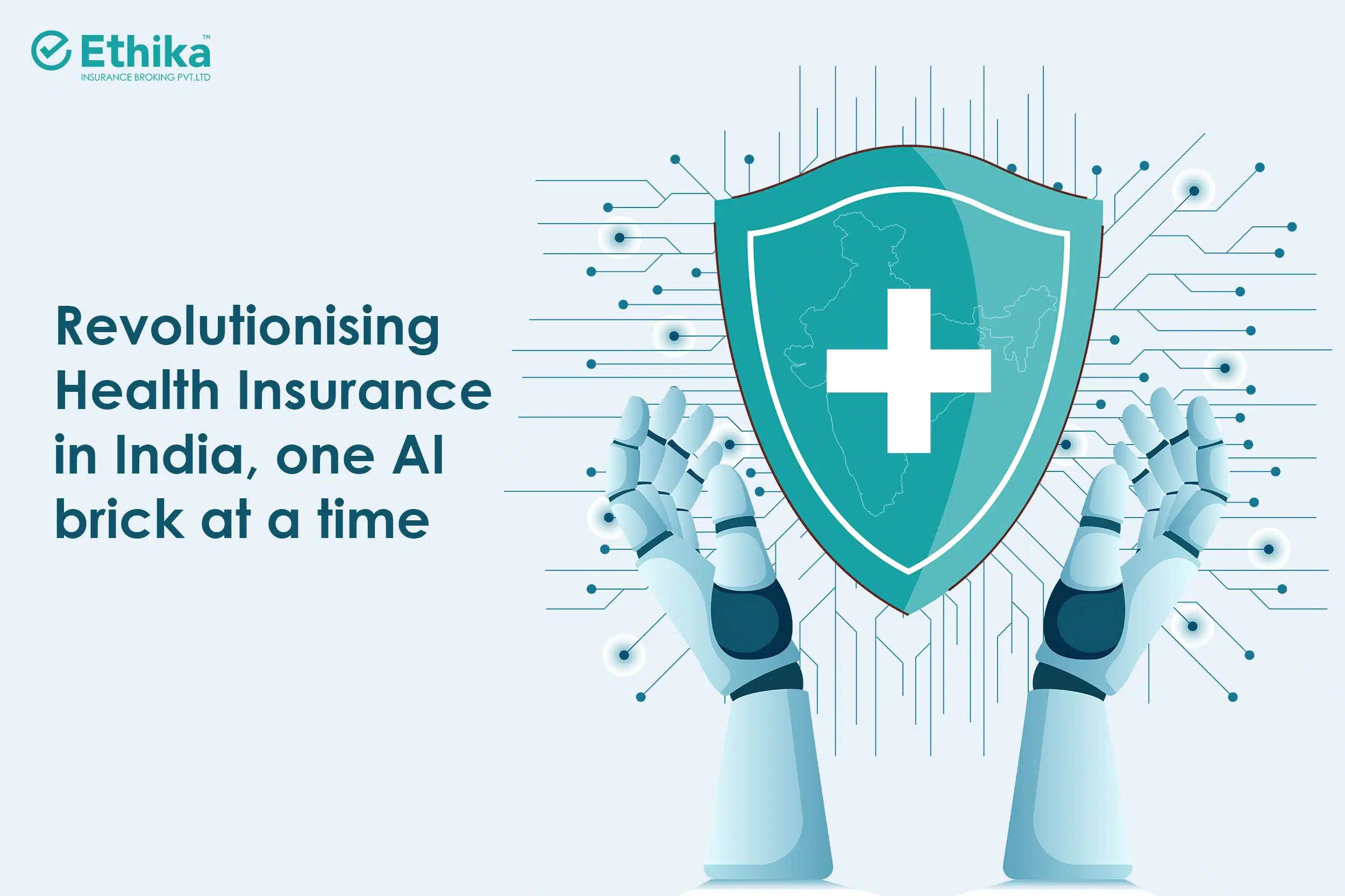
India’s healthcare system, while vast, faces challenges like affordability, accessibility, and efficiency. Artificial intelligence (AI) emerges as a potential game-changer, transforming the health insurance landscape in exciting ways. From fraud detection to personalized medicine, let’s explore how AI is reshaping the industry:
What’s on this page?
Smarter and Faster Underwriting
Niva Bupa, one of the larger Stand Alone Health Insurers in India has invested heavily in AI. More than 50 per cent of their policies get issued with zero human touch entirely digitally, and about 90 per cent of our renewals are now happening digitally. And that is not all. The company, he added, is using new age technologies like artificial intelligence and machine learning for process automation, fraud mitigation and driving business revenue.
Personalised Risk Assessment
Technology is now a tool that gives insurers the bandwidth to rely on large amounts of historical data and capture individual health nuances. Integration of health bands with your health insurance policy premiums is already happening in the west. We are not far from a place of super personalised insurance policies. This in turn will enable insurers to offer more targeted and affordable plans, improving affordability and accessibility.
Early Disease Detection & Prevention
Early detection is crucial for effective treatment and better outcomes. AI-powered tools help analyse medical images and clinical data to identify early signs of diseases like cancer and heart conditions with high accuracy. This in turn empowers insurers to offer preventive care programs and incentivize healthy behaviours, ultimately reducing healthcare costs.
Chatbots and Virtual Assistants
Most insurers today use Chat bots and Virtual Assistants to service Customers. While the effectiveness of usage is circumspect, the fact remains that chat bots are here to stay. The smarter insurers however use these tools as a means to screen rather than service Customers. But the 24/7 accessibility of such tools does ensure reduced workload on human agents, which should translate into quality service delivery, if not today, tomorrow.
Claim settlements in Health Insurance Industry Using AI:
One of the most prominent advantages of artificial intelligence is in the area of fraud detection. Claims are prone to fraud in India as the documents could be forged by people or by declaring false information. AI is being used to analyze large amounts of data and identify similar patterns that suggest fraudulent incidents or activities. Fraud investigators are being replaced by AI as it is reducing time required for discovering and unlocking a pattern of fraud and increasing efficiency. The time taken by a normal human to analyze the data depends on the amount of data, higher the data, higher would be the time. But for artificial intelligence, the time taken to analyze the data is lower and efficient as well.
Challenges and the Road Ahead:
Despite the immense potential, challenges remain. Data privacy concerns, ethical considerations around bias in algorithms, and the need for robust infrastructure require careful consideration. Additionally, ensuring equitable access to AI-powered healthcare solutions across diverse demographics is crucial.
Conclusion:
AI is undoubtedly transforming the health insurance landscape in India. By addressing affordability, accessibility, and efficiency, AI holds the potential to create a more equitable and sustainable healthcare system. As we move forward, collaborative efforts between stakeholders – insurers, healthcare providers, and policymakers – are essential to ensure responsible and ethical implementation of AI for a healthier future.
Faq
How would AI help with health insurance claims?
The claims process can also be streamlined using artificial intelligence for health insurance. If you can input the past data of claims and the reason for the occurrence of claims, then artificial intelligence would process the data and identify patterns and if similar calais arise in the future it would be taken care of by artificial intelligence. It would also result in the reduction of manpower who can do similar things.
What are the advantages of using AI in the health insurance industry?
AI would improve the efficiency of the process by reducing the cost at the same time.
How can insurance companies use AI in risk assessment for health insurance proposals?
More importantly, insurance companies may use artificial intelligence in risk assessment based on certain factors such as age, location, occupation, health history and lifestyle of the customer.
How does AI improve coordination among the parties involved in a health insurance process?
The other advantage of artificial intelligence would be improving the communication between customer and insurance company by taking along intermediaries, hospitals, third party administrators etc. Endorsements could become easier with the introduction of artificial intelligence reducing the need of human interaction for tasks that could be done easily.
What are the potential risks of using AI in health insurance?
While AI offers numerous benefits, concerns exist regarding data privacy, algorithmic bias, and accessibility. It’s crucial to ensure data security and implement fair algorithms that don’t discriminate against specific groups. Additionally, ensuring equitable access to AI-powered healthcare solutions across diverse demographics is essential.